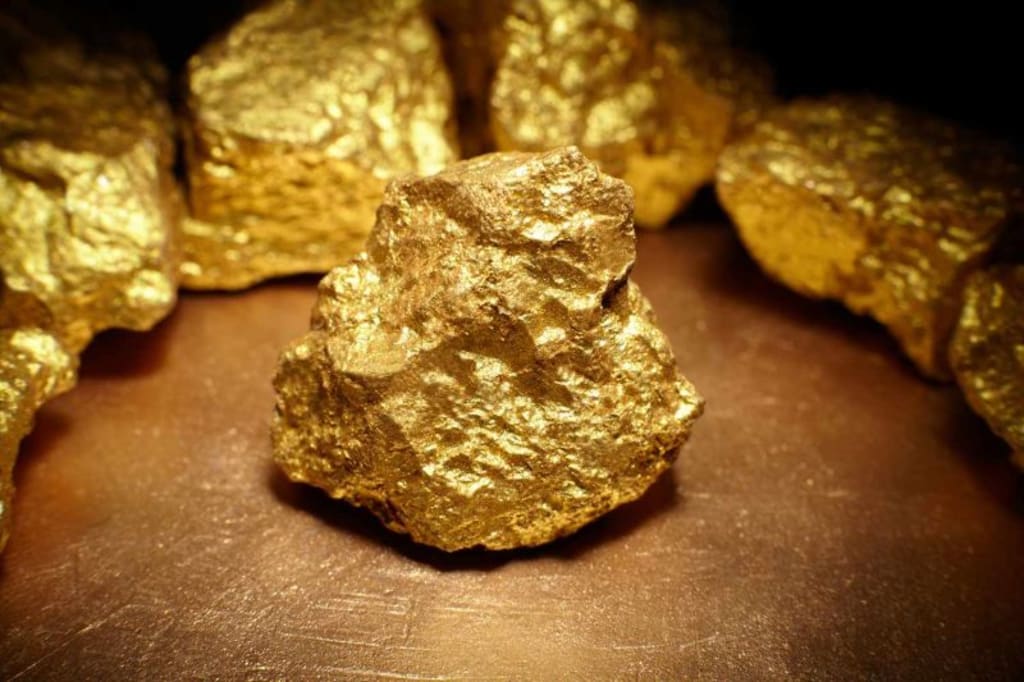
🌟 Scientists have discovered bacteria that produce gold. Bacteria with the Midas Touch!
✨In 2018, an international team of researchers uncovered the secrets of a bacterium called Cupriavidus metallidurans. It possesses exceptionally high toxicity levels and the remarkable skill of synthesising gold from natural compounds. But how does it manage to survive even after ingesting toxic metallic compounds?
✨As a side effect of consuming toxic compounds, this rod-shaped bacterium produces minuscule nuggets of gold. Through a remarkable process, C. metallidurans detoxifies gold complexes, resulting in the formation of gold biominerals. In environments rich in hydrogen and #toxic heavy metals, the bacterium's unique survival mechanisms kick in, allowing it to thrive.
✨Enzymes play a pivotal role in this incredible transformation. While the CupA #enzyme eliminates copper, another enzyme called CopA enables the bacterium to convert copper and gold compounds into forms that are less easily absorbed by the cell. As a result, the bacterium experiences reduced poisoning, and gold nanoparticles appear on its surface, leading to its remarkable reputation as a "gold-pooper."
Cupriavidus metallidurans, formerly known as Ralstonia metallidurans, is a species of Gram-negative bacteria known for its exceptional resistance to heavy metals, including gold. It was first discovered in 1976 in a Belgian zinc processing plant.
C. metallidurans possesses unique mechanisms that enable it to tolerate and even accumulate high concentrations of heavy metals. These mechanisms include the ability to actively pump out toxic metals from the cell and the formation of metal-binding proteins or complexes to sequester metals.
In the case of gold, C. metallidurans has been found to interact with gold ions and form nanoparticles of metallic gold within its cells. This phenomenon has attracted attention because it offers potential applications in bioremediation and bioleaching processes. Bioleaching is a technique that uses microorganisms to extract metals from ores, and C. metallidurans has shown promise in aiding the recovery of gold from electronic waste and low-grade gold ores.
However, it's important to note that C. metallidurans does not naturally produce gold. Rather, it interacts with gold ions in its environment and facilitates the formation of gold nanoparticles. These nanoparticles can then be harvested and potentially used in various applications, including catalysis, electronics, and materials science.
As of my knowledge cutoff in September 2021, there were no known natural bacteria that produce gold. Gold is a naturally occurring element and is not typically produced by living organisms. It is primarily formed through geological processes, such as the cooling and solidification of molten rock or hydrothermal activity.
However, it is worth noting that scientists have been exploring various biotechnological approaches to extract gold from ore or other sources using bacteria. These bacteria are not producing gold themselves but rather aiding in the extraction process. Certain bacteria have been found to have the ability to solubilize gold from ores or concentrates by using specific metabolic pathways. This research is still in the experimental stage, and commercial applications are yet to be developed.
It's important to keep in mind that scientific knowledge and advancements are constantly evolving, so there may have been new discoveries or developments in this field since my knowledge cutoff.
Cupriavidus metallidurans as the "gold pooper," it appears to be a play on words or a colloquial term that highlights the bacterium's ability to accumulate gold nanoparticles within its cells.
As mentioned earlier, Cupriavidus metallidurans has been found to interact with gold ions and facilitate the formation of gold nanoparticles as part of its unique resistance mechanisms to heavy metals. These gold nanoparticles can be harvested from the bacterium, leading to the association with the term "gold pooper."
It's worth noting that this term is not a scientific or technical designation but rather a more informal and playful description of the bacterium's capability.
About the Creator
Rohina Bushra
"Unlock a World of Engaging Content: Experience Fun, Suspense, Life Lessons, Facts, and Advice like Never Before!"
Enjoyed the story? Support the Creator.
Subscribe for free to receive all their stories in your feed. You could also pledge your support or give them a one-off tip, letting them know you appreciate their work.






Comments
There are no comments for this story
Be the first to respond and start the conversation.